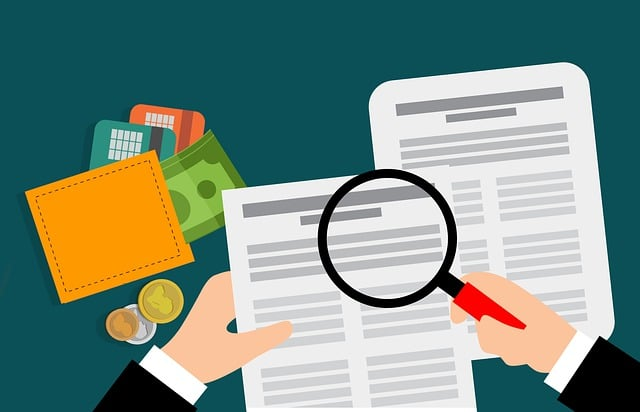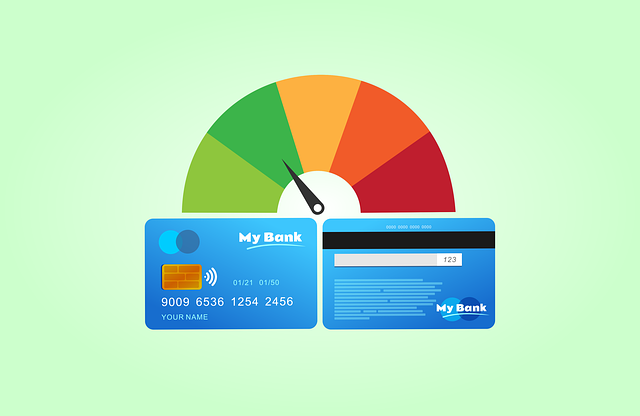The importance of our credit score is a reality we all must confront.
This guide walks you through how to use this Sample Letter To Remove Personal Information From Credit Report.
Whether you are looking to buy that dream home, planning for retirement, or getting your kids ready for college, understanding and monitoring your credit report is essential to achieving financial security – now and in the future.
With SmartCredit’s comprehensive credit monitoring, it just got easier to do so!
By staying informed with detailed reports and tracking any changes on an ongoing basis, users will easily be able to dispute any personal information they find incorrect on their credit reports.
To help you get started on this process, we’ve gathered a Sample Letter Template To Remove Personal Information From Your Credit Report, which will be sure to provide all the guidance needed when it comes time to take action at the bureaus.
Understanding The Types of Information on Your Credit Report
1. Personal Information – Name, Social Security Number, Home Address
2. Credit Accounts – Loans and credit cards with payment history and balances
3. Inquiries – Records the account number of companies who have requested to view your credit report
4. Public Records & Collections – Bankruptcies, court judgments, liens, or overdue debt
5. Negative Entries – Late payments and any other adverse information reported by creditors
6. Positive Entries – Good payment history and other positive information reported by creditors
Get To Know The Credit Bureaus
The three major credit bureaus in the United States that issue and maintain credit reports are Experian, Equifax, and TransUnion.
Experian is one of the most widely used credit bureaus and has a range of services to help individuals monitor their credit histories. It can be contacted at 1-888-397-3742 or through its website, www.experian.com.
Equifax is another famous credit bureau name providing identity protection and credit monitoring services to help consumers protect their data from fraud and improve their financial health. It can be contacted by phone at 1-800-685-1111 or through its website, www.equifax.com.
TransUnion is the third central bureau in the U.S., offering various services designed to assist consumers in managing their credit profiles, including access to free annual reports, dispute resolution tools, and other resources for improving financial literacy. It can be contacted by phone at 1-800-916-8800 or through its website www.transunion.com

Understanding the Process of Disputing Information On Your Credit Report and The Fair Credit Reporting Act
The Fair Credit Reporting Act is a law that helps protect consumers. It says what credit bureaus must do when people dispute information on their credit reports. This law helps people ensure the information on their credit reports is correct and up-to-date. It also helps people get information removed if it is wrong or not needed anymore.
Navigating the process of disputing incorrect information on your credit report can feel overwhelming. But if you know what to expect, it can be easier than you think. Before sending a dispute letter, understand the legal rights and documents you must provide. Researching state and federal laws before beginning the credit report or dispute process, letter and process is your first step toward resolving any issues with the credit bureaus.
Furthermore, regular credit monitoring with a service like SmartCredit is another valuable tool for keeping track of what’s on your credit report, allowing you to refute inaccuracies early in the process. With an understanding of the laws and access to updated information, disputing incorrect or inaccurate information on your credit report doesn’t have to be as stressful as it may seem.
Free Credit Reports vs. Paid Ones
Free credit reports are available to consumers from annualcreditreport.com, a website operated by the three major credit bureaus: Experian, Equifax, and TransUnion.
These free reports provide consumers with basic information such as personal information (name, address, Social Security Number), credit accounts (current and past loans and credit cards with payment history and balances), inquiries (records of companies who have requested to view your credit profile or report), public records & collections (bankruptcies, court judgments, liens or overdue debt), negative entries (late payments and any other adverse information reported latest credit report by creditors), and positive entries (good payment history and other positive information reported by creditors).
While these free reports provide a great deal of helpful information on an individual’s financial history, they do not offer personalized advice or more in-depth analysis of credit scores which may be necessary for certain financial decisions.
By comparison, paid credit reports generally offer more features than free reports. Some paid services provide personalized advice from experienced professionals regarding improving your credit score or taking steps to prevent identity theft. Additionally, many paid services include additional features such as monthly updates on fundamental changes in one’s FICO score or access to additional scoring models such as VantageScore.
Furthermore, some paid services offer access to free credit report monitoring tools that allow you to track changes on your credit report across all three major bureaus in real time.
A paid service may benefit those looking for more than just essential but comprehensive insight into their financial health.

Crafting a Letter to Disputing Personal Information on Your Credit Report To The Credit Reporting Agencies
In this digital age, it’s important to stay vigilant with our personal information, especially regarding credit.
While mistakes from lenders or inaccurate entries from data furnishers can affect your credit score, there are steps you can take to dispute the errors.
Crafting a letter to the credit bureaus is a great way to start the process. While composing such a letter may seem daunting, SmartCredit simplifies the process by offering templates and instructions on reviewing your credit reports and helping identify potential errors.
Taking proactive steps in monitoring and managing your credit score has never been simpler!
Sample Letter to Remove Personal Information from Credit Report
No one likes getting rejected because of bad credit or having to explain mistakes you made in the past. Thankfully, there’s hope if you’ve been trying to remove personal information from your credit report but have been coming up short.
A sample letter can give you the script necessary to appropriately dispute inaccuracies and get back in good graces with the credit bureaus.
SmartCredit’s credit monitoring can help you update your credit report accordingly so that your future applications are error-free!
Disputing Inaccuracies On Your Credit Report Online or by Mail?
Disputing inaccuracies on your credit report can be done through mail or online.
Disputing by mail involves filling out dispute forms by certified mail and sending them to all three credit bureaus with proof of the inaccuracy, such as a copy of the incorrect statement from a lender.
The disadvantage of this method is that it will take longer to resolve the issue since all three bureaus must be contacted individually, and proof must be submitted to each bureau.
Additionally, if you cannot provide proof, it may hinder your ability to dispute inaccuracies.
On the other hand, disputing errors online is faster and easier since you can contact all three bureaus with at least one error at once.
This also makes it more likely that an error will be corrected quickly due to the automated nature of online disputes.
Furthermore, online disputes typically provide more information about potential errors so you can better assess which ones need to be corrected.
However, there is always a risk when filing disputes electronically, as data may be lost or altered while in transit between different systems.
Additionally, some discrepancies may require additional investigations or proof that cannot be provided electronically, making offline disputing necessary.
Benefits of Using SmartCredit for Credit Monitoring
Monitor your credit and protect yourself from identity theft with the help of SmartCredit.
Members of SmartCredit receive access to informative tools, helpful live customer service, and a host of features that promise to help you stay equipped against malicious activity on your report.
Benefits of using SmartCredit for credit monitoring include having 24/7 access to a personal dashboard that keeps you informed about any changes or discrepancies in your credit score.
Suppose you ever need to dispute inaccurate negative information used in your report. In that case, you can use one of their convenient letter templates automatically populated with all the necessary personal information to ensure effective communication with the credit bureaus.
Make the smart move today and choose SmartCredit for all your credit monitoring needs!

Steps for Cleaning Up Your Credit Score After Removing Personal Info From A Credit Bureau
Removing personal info from your credit report can be a significant first step in improving your credit score, but it’s not the only thing you need to do.
You’ll need to take additional steps to maximize the benefits of cleaning up your credit score. That’s where SmartCredit comes in.
With SmartCredit, you can easily monitor and track your credit score before and after making changes.
Plus, their detailed guides will help ensure you know what to do when submitting letters to the credit bureaus – like choosing a letter template and verifying the accuracy of the birth date and of birth for all entries on your report – to dispute or correct information.
With all these reliable resources, nothing stops you from improving your credit score!
How to Monitor Your Credit Score Moving Forward with SmartCredit
Keeping an eye on your credit score can seem like a lot of work.
You should take advantage of SmartCredit to make that process easier! SmartCredit makes credit monitoring fast, simple, and accurate.
Their user-friendly interface allows anyone to quickly find their important credit info, like current FICO scores and recent actions taken by creditors.
You can use the provided letter templates to help dispute personal information in the major credit bureaus if needed.
Do yourself a favor and start using the services offered by SmartCredit for a hassle-free way to keep up with your credit score.
What to Do if Your Dispute Is Unsuccessful
If your dispute with credit repair, is unsuccessful, don’t be disheartened. Sometimes, credit bureaus may not agree with your dispute or may not have enough evidence to change the information on credit file. If that happens, you have a couple of options.
First, you can file a statement of dispute that will remove inaccurate information be added to your credit report. This is your chance to explain the situation in your own words, which will be seen by anyone who checks your credit report errors.
Second, you can contact the company that provided the information to the credit bureau. Explain the situation and ask if they will update the information to correct address remove errors on their end. They are legally obligated to notify the credit bureaus if they find that the information is indeed incorrect.
How to Protect Your Personal Information and Prevent Identity Theft
Identity theft is a growing problem that can have disastrous effects on your credit score. To prevent identity theft, always safeguard your personal information. Never give out sensitive information unless you’re sure of who is asking and why.
Keep track of your financial accounts and check them regularly for any signs of fraudulent activity. If you notice anything suspicious, report it immediately to your bank or credit card or credit reporting company, and to the credit bureaus.
Remember, it’s always better to be safe than sorry when it comes to protecting your personal information and your credit score.

The Role of Your Credit Score in Financial Planning
Your credit score is a critical component of your overall financial health. It influences the interest rates you’ll receive on loans and credit cards, and it can even affect your ability to rent an apartment or get a job.
Therefore, keeping track of your credit score and working to improve it should be a part of your financial planning process. By regularly monitoring your credit score and taking steps to improve it, such as making timely payments and keeping your credit utilization low, you can increase your financial opportunities and save money in the long run.
How to Improve Your Credit Score Over Time
Improving your credit score takes time, but the effort is worthwhile. There are a few key strategies that can help improve your score:
- Pay your bills on time: Late or missed payments can have a significant impact on your credit score.
- Keep your credit utilization low: This is the ratio of your credit card balance to your credit limit. It’s generally recommended to keep this ratio below 30%.
- Limit new credit inquiries: Each time you apply for credit, it can result in a small decrease in your credit score, so only apply for new credit when necessary.
- Diversify your credit: Having a mix of different types of credit (like credit cards, auto loans, and a mortgage) can positively impact your score.
The Value of Financial Literacy
Financial literacy is an important skill that goes beyond just understanding your credit score. It involves understanding how money works in the world: how someone makes, manages and invests it, and how that person uses it to help others.
When you have a clear understanding of how to manage your finances, you can make informed decisions that help you achieve your financial goals, whether it’s buying a house, saving for retirement, or paying for your child’s college education.
By taking the time to learn about personal finance, including the ins and outs of credit scores and reports, you are investing in your future and setting yourself up for financial success.
In conclusion
Disputing personal information on your credit report can be daunting, but it can be easy to do with the right knowledge and guidance.
Crafting a letter to ensure you have all the necessary supporting documentation is critical to a successful credit dispute letter and process. Not only that, but using SmartCredit monitoring services lets, you stay informed of your credit scores.
Through their automated tracking alerts and regular credit monitoring, you’ll have peace of mind knowing that your identity is safe and familiarize yourself with any factors influencing your score.
Finally, when making important decisions such as taking out a loan or opening a new line of credit, always check your credit report prior as part of sound financial management. Following these steps and taking action quickly with the given tools can help restore and maintain a healthy credit score!

